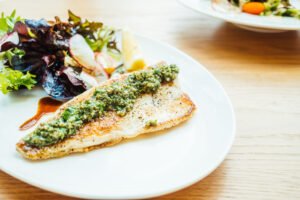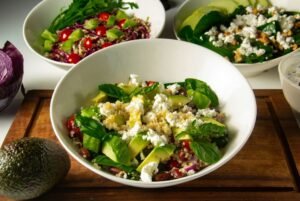About 10 years ago or more, most people knew NOTHING about sports nutrition. The little that was known and passed on to athletes and sportspeople had nothing to do with what we know today. Thanks to science, sports nutrition has advanced by leaps and bounds. Nowadays, it is well known that food is not a support for training, but rather PART OF TRAINING. However, do you treat it that way?
Food as Part of the Training
When you run well but eat poorly (or not at all), your body attempts to compensate. However, over time, the consequences become evident: reduced energy, slow recovery, and stagnation.
It seems like an exaggeration, but that’s what I see in almost all the runners who come to me:
They think that training more will solve the problem.
But they ignore what they put on their plates before and after the race.
It’s like putting the wrong fuel in a race car. Eventually, the engine will complain.
Unfortunately, there are still many athletes and sportspeople who do not take nutrition seriously. The reality is that food is part of training, but do you treat it as such?
The Kipchoge Example
I’m pretty sure you know Eliud Kipchoge, right? If you don’t, just Google him.
Eliud is an elite athlete, unlike most people. He grew up running; it’s his life, he lives for it.
When I see him running at his normal pace (which is extremely fast for me), it doesn’t even look like he’s struggling. But what about his diet? Can he eat anything he wants? Is he free to eat whatever he wants? I went looking for this information.
Because of the long distances he does, a lot of his diet is protein and carbohydrates.
There is no binge eating for the double Olympic marathon gold medallist – he only eats at specific times during the day.
Here’s what Eliud eats:
- Ugali, which is a solid maize meal porridge
- Bananas
- White tea with sugar
- Eggs
- Fruits
- Cereals
- Milk
- Oatmeal
- Lean beef
- Managu – an indigenous spinach-like vegetable
- Cabbage
- Kale
- Rice
- Spaghetti
- Fish
- Mursik – it’s fermented Milk
- Kidney beans
- Potatoes
- Sweet potatoes
- Chapati – a flatbread
Interesting, isn’t it?
He wouldn’t have gotten as far as he did if diet weren’t part of his training.
What I find most admirable is that he emphasizes the importance of nutrition because he knows that without it, his body won’t perform optimally. Running well or maintaining a fast pace isn’t enough.
When you start treating food as part of your training, everything changes:
- You have more energy to perform well, from start to finish.
- You recover faster and can truly evolve.
- You avoid injuries related to accumulated fatigue or inflammation.
- You feel lighter, stronger, and more confident.
It’s a mindset adjustment before it’s a perfect meal plan.
And most importantly, you don’t have to eat 100% right all the time.
You need to eat right at the moments that impact your performance.
If you run frequently and work hard, you deserve a diet that matches your discipline!
Strategic nutrition is not a luxury. It’s what transforms a frustrated amateur into a high-performing one








